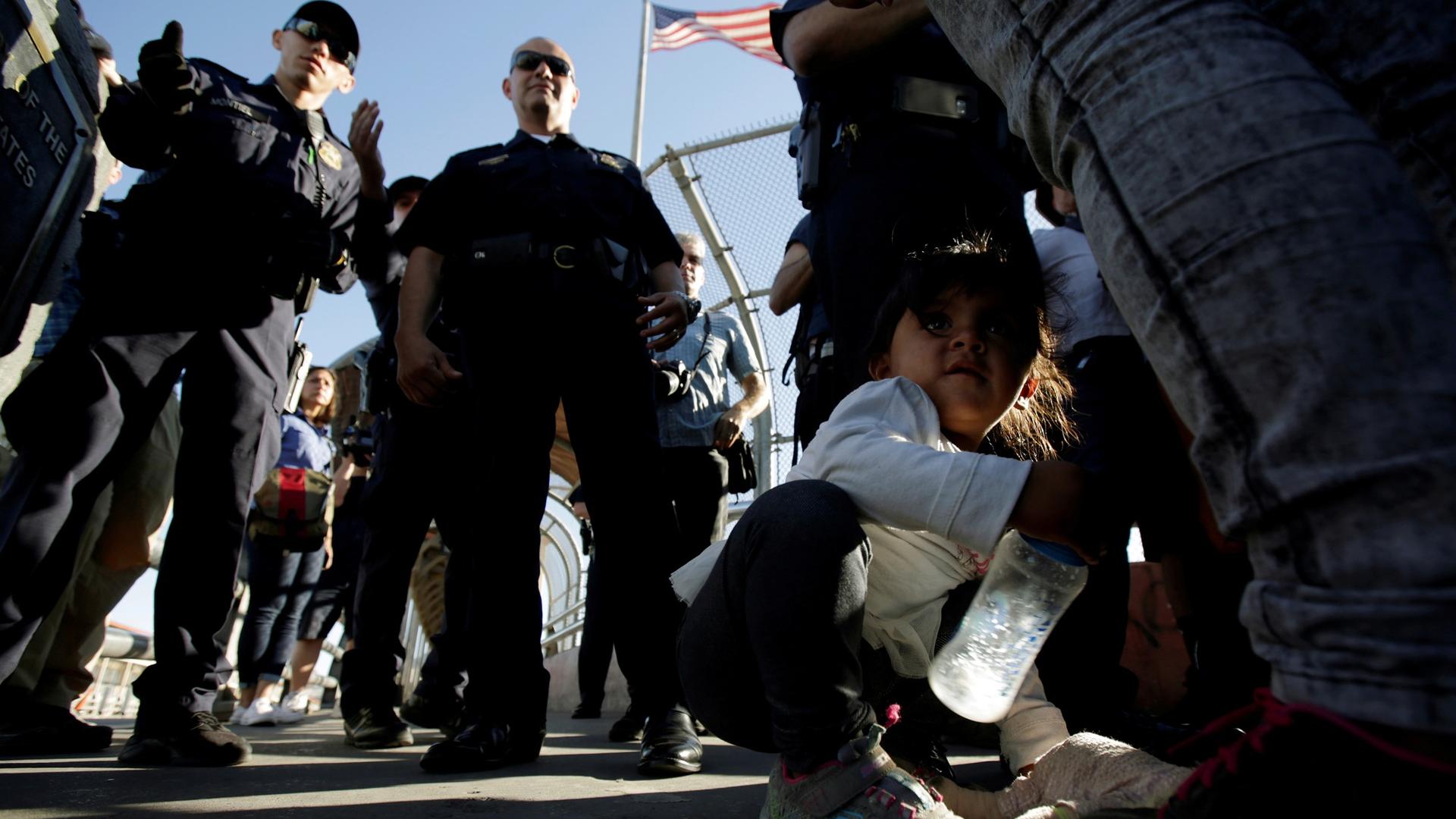Discussion: What trauma are separated migrant children now dealing with?
Migrant families from Mexico listen to officers of the US Customs and Border Protection before entering the United States to apply for asylum at Paso del Norte international border crossing bridge in Ciudad Juarez, Mexico, June 20, 2018.
Dr. Jack Shonkoff from Harvard’s Center on the Developing Child joined The World’s Rupa Shenoy at The Forum, at Harvard T.H. Chan School of Public Health, for a Facebook Live on June 28, 2018.
On Tuesday, US District Court Judge Dana Sabraw granted a preliminary injunction in a lawsuit filed over migrant family separations. The ruling orders the Trump administration to speed up reunions of children and parents who were separated when caught crossing the US-Mexico border illegally. It came after the Trump administration, under immense political and public pressure, issued an executive order that put a stop to the separation policy.
“We’re going to have strong — very strong — borders, but we are going to keep the families together,” President Donald Trump said as he signed the order. “I didn’t like the sight or the feeling of families being separated.”
Related: ‘I lost trust in the system,’ says US citizen now unable to reunite with his Yemeni family
The US government said that from April 19 through the end of May, nearly 2,000 children have been separated from adults who were either their parents or guardians.
Sabraw’s ruling on Tuesday also calls on US officials to reunite those families that had been split up within 30 days, and sets a two-week deadline for children under age 5.
But was the ruling too little too late? What about the trauma these children are now dealing with?
Dr. Jack Shonkoff from Harvard’s Center on the Developing Child says that the toxic stress for the migrant children separated from their parents is kind of opening up a “black box of what is it about chronic stress that produces disease, that produces problems in behavior, problems with learning.”
Dr. Colleen Kraft, president of the American Academy of Pediatrics, agrees. Kraft, who recently visited a detention center that held unaccompanied migrant children separated from their parents, says toxic stress is dangerous and the damage can be long-lasting.
“Without that parent to help buffer that reaction, these chemicals go on to destroy the architecture of that child’s developing brain,” Kraft says. “They destroy the synapses that occur that result in the ability for that child to love, to learn, to develop. So separation even for a short time is something that’s toxic to a child’s developing brain.”
The science behind this, as complicated as it seems, may be more about common sense, according to Shonkoff. He suggests you don’t need a scientist to really explain the dangers this kind of stressful situation can hold for a child.
“The crisis that’s going on right now, and this whole question about, so what is the impact of these forced separations on children of different ages, science has a lot to say about what, biologically, is going on,” Shonkoff says.
“But, fundamentally, this is a moral issue,” he says. “This is an issue of humanity. This isn’t a scientific puzzle. I think what’s important about the science is that it helps level the playing field. Let’s not talk about political ideologies, let’s not talk about different value systems or different political strategies. From a science point of view, there’s nothing but bad for children.”
